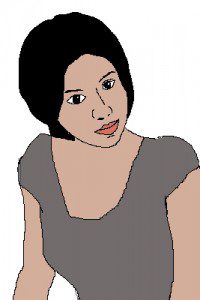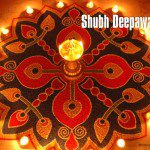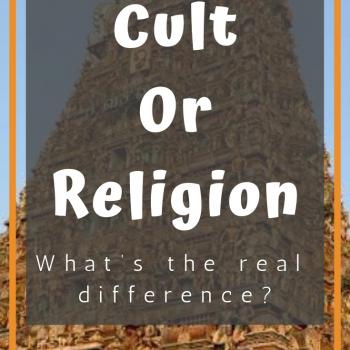Here is another interview with a young American Hindu about religion, culture, and identity from my friend Anjali…
1) Tell us about you and your family. Were you born in the U.S.? Were your parents? Are they from India or Africa or somewhere else?
My family is from India. My dad was born in a small village called Peddapuram in South India. My mom was born in Hyderabad, which is a more multicultural city, heavily populated with Hindu people and Muslim people alike. My sister and I were born in Oak Ridge Tennessee. My dad came over here when he was in his 20’s to do his PhD, and he married my mom when he was 33 and she was 26. She came to the USA and did her PhD when she got married at that age.
2) What religion is your family and would you consider yourself that religion also?
My entire family is Hindu, and I would consider myself a practicing Hindu. My sister is a lot more Americanized than I am, and I think she clings a lot less to that image of herself. My parents consider themselves Hindu and religious.
3) Do you see yourself as a spiritual or religious person?
I see myself as spiritual and religious. I have a very intensely ingrained relationship with God, so much so that if I go to the temple, I need to go alone. When I pray, I’m speaking to God as if there is an extension to myself. There is a level of focus and intensity to the relationship that barely allows me to be public about it.
4) What role, if any, does religion play in your life?
For me, I find the only thing in life that is permanent is change. The only relationship in my life that I have that never changes is my relationship with God. I find a lot of solace in it when I feel alone or unsupported in my endeavors. Often times, when friends and even family cannot be there for you in your deepest thoughts, it is reassuring to find direction as well as supervision in a higher power. Having no strong role models in my personal life, I look to exemplary stories from Hindu mythology to guide my sense of morality as well.
5) Do you feel any conflict between your American identity and your Indian identity?
I find conflict between my American identity and Indian one everyday, but on closer inspection I am not sure that my struggles are symptoms of being American. I have a very strong sense that a woman needs to be financially independent, have her own thoughts, and share everything 50-50 with her husband in terms of responsibilities. Thoughts like me doing all the cooking and cleaning, and him doing all the outside work, or him working while I stay home with the kids are so offensive to me that I barely even let men pay for anything for me on dates. I insist on paying my way and making my voice heard so that no one can minimize my contribution or importance. When I date Indian men, however, I often find they couldn’t care less about my career as long as I’m cooking, cleaning, etc…Not everyone, but there is definitely a strong preference and skew towards women occupying traditional roles. In India, traditional roles are the norm, and I am abnormal. In the USA, there are still people who think women need to be stereotypical women and men need to be men. So who am I to say that these traits are Indian or American? I will say this–I find myself thinking in a very individualistic way most of the time. If I have a candy bar and I’m out with my friends, it doesn’t even occur to me to share. My default is focused much more on the individual and much less on family or group mentality. I also stand up against a group if I disagree about anything without fear of consequence. I find these traits more American. Oddly enough I’m not attracted much to men from the USA, and like guys from metropolitan Indian cities more. Needless to say I feel torn more often than naught.
6) If so, which is more important in your life or are they equal?
Me being healthy, happy, safe, and successful in life are important things. Indian or American does not figure into it. If tomorrow I think the way for me to be those things is to take on a very Chinese or European way of life or identity, I’d do it in a heartbeat. Understanding what makes me happy and how to get it and retain it is very important.
7) How would you define “culture”?
Culture is typically a set of beliefs, customs, behaviors that are regarded as the norm or most frequent across a population. The way that ballet is customary for little girls to learn in the USA, little girls in India can grow up learning Bharat Natyam, Kathak, or Kuchipudi, and that’s a widely accepted behavior. My definitions for most things in life stem from very statistically based groupings around an agreed upon meaning. Tomorrow if everyone agrees that some new absurd hobby, behavior, or belief is normal, I will say that is the culture around here to do that. Who would have thought jeans riding low on a guy would grow into a fashion statement indicative of a certain set of beliefs? When I first saw it I thought guys were losing all this weight and their pants were falling off. Look at how time changes culture everywhere through the mere power of suggestion or popularity. Novelty and bandwagon are two traits I notice that are big parts of American and Indian cultures. They have amazing power.
Culture and race are definitely connected. Marital alliances often seek out fair brides or grooms for their children because they have a notion that fairness breeds success, so among a group of people with that belief, we see fairer children and race gradients across both India and the United States. In the USA some people like tanned looks or the idea or notion of beauty is driven by a preference for darker skin. Population in that area will grow in favor of that preference. It’s basic Darwinism. That which is likely to succeed is dominant and grows. Weak preferences diminish or are selected out.
Extended interviews are available at my subscription blog: http://admin.patheos.com/premium/whitehindu/2013/10/interviews-with-americans-of-indian-ethnicity-anjali
Additional questions there are:
9) When non-Indian Americans like bindis, Bollywood movies, or om tattoos, how do you feel about it?
10) What is your relationship with your family like? How do they respond to your American-ness?
11) Do you feel pressures from your family or community to be a certain way?
12) What elements of yourself and your history make you most you?
Identity is tough. It’s an issue that can strike anyone. Even moving from one part of America to another can cause identity crisis. It’s heart breaking to hear about the everyday conflict Anjali feels between her different identities.
I like the answer to number 6! Figuring out what makes us happy and doing that seems like the real secret to life, doesn’t it? It really concerns me when some people think that it’s good to sacrifice your personal happiness for a greater good. I can think of very few examples of where it does truly benefit the community or the family to have people putting their own needs and happiness aside.
I’m glad to see that I’m not the only young person (relatively speaking. I wonder how much longer I can call myself that?) who is deeply religious and finds God to be a really important part of my life. Sometimes it can feel like no one cares about the same things as me. But these interviews are allowing me to see a little bit into the spiritual life of my friends and find that many of us are religious. As Anjali says, her connection to God is very personal and so it isn’t something that comes up in everyday conversation.
There are people who want to paint both young people and Americans as too materialistic or selfish, but we are in fact thinking about the meaning in our lives and what matters most in the grand scheme of things (even when we come to different conclusions, I think all my friends are taking time in their lives to pursue deeper meaning).
















